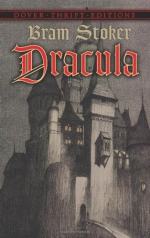“There, you know now why I love him so. And yet when he say things that touch my husband-heart to the quick, and make my father-heart yearn to him as to no other man, not even you, friend John, for we are more level in experiences than father and son, yet even at such a moment King Laugh he come to me and shout and bellow in my ear, ’Here I am! Here I am!’ till the blood come dance back and bring some of the sunshine that he carry with him to my cheek. Oh, friend John, it is a strange world, a sad world, a world full of miseries, and woes, and troubles. And yet when King Laugh come, he make them all dance to the tune he play. Bleeding hearts, and dry bones of the churchyard, and tears that burn as they fall, all dance together to the music that he make with that smileless mouth of him. And believe me, friend John, that he is good to come, and kind. Ah, we men and women are like ropes drawn tight with strain that pull us different ways. Then tears come, and like the rain on the ropes, they brace us up, until perhaps the strain become too great, and we break. But King Laugh he come like the sunshine, and he ease off the strain again, and we bear to go on with our labor, what it may be.”
I did not like to wound him by pretending not to see his idea, but as I did not yet understand the cause of his laughter, I asked him. As he answered me his face grew stern, and he said in quite a different tone,
“Oh, it was the grim irony of it all, this so lovely lady garlanded with flowers, that looked so fair as life, till one by one we wondered if she were truly dead, she laid in that so fine marble house in that lonely churchyard, where rest so many of her kin, laid there with the mother who loved her, and whom she loved, and that sacred bell going ‘Toll! Toll! Toll!’ so sad and slow, and those holy men, with the white garments of the angel, pretending to read books, and yet all the time their eyes never on the page, and all of us with the bowed head. And all for what? She is dead, so! Is it not?”
“Well, for the life of me, Professor,” I said, “I can’t see anything to laugh at in all that. Why, your expression makes it a harder puzzle than before. But even if the burial service was comic, what about poor Art and his trouble? Why his heart was simply breaking.”
“Just so. Said he not that the transfusion of his blood to her veins had made her truly his bride?”
“Yes, and it was a sweet and comforting idea for him.”
“Quite so. But there was a difficulty, friend John. If so that, then what about the others? Ho, ho! Then this so sweet maid is a polyandrist, and me, with my poor wife dead to me, but alive by Church’s law, though no wits, all gone, even I, who am faithful husband to this now-no-wife, am bigamist.”
“I don’t see where the joke comes in there either!” I said, and I did not feel particularly pleased with him for saying such things. He laid his hand on my arm, and said,




